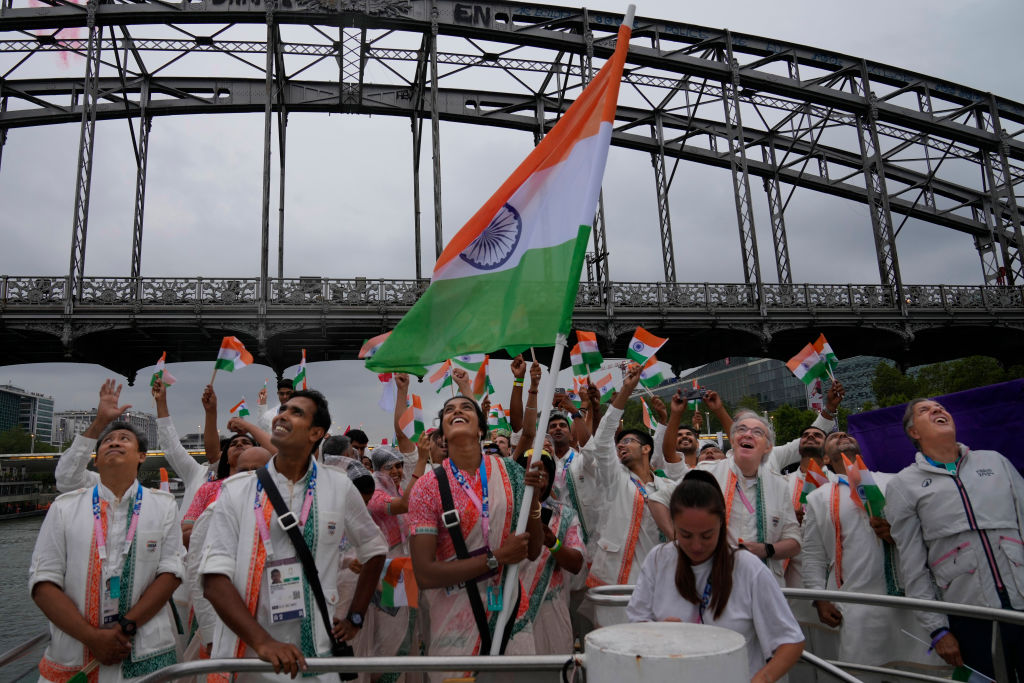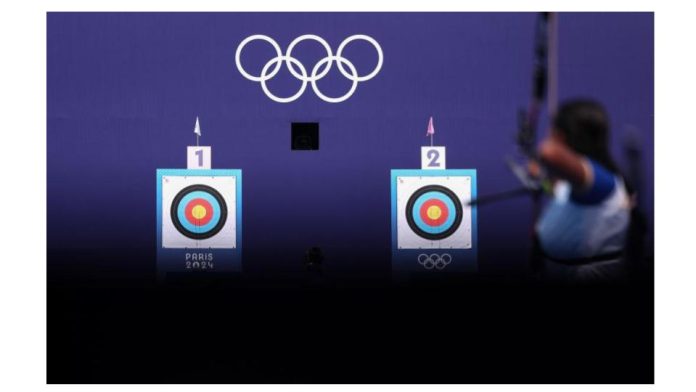The Olympic Games are being held in Paris from July 26, 2024, to August 11, 2024. During this period, around 10,500 athletes from around the world are competing for Olympic medals in 329 events. The Paralympic Games will also take place in Paris from August 28 to September 8, where 4,400 athletes will compete for medals in 549 events. While 184 countries are sending their athletes to the Paralympics, 206 countries are participating in the Olympic Games this time.
Indian athletes are showcasing their remarkable talent at the Paris 2024 Olympic Games. So far, India has won three bronze medals at the Paris Olympics. Swapnil Kusale has won a bronze medal for the country in the 50-meter (men’s) rifle category. Manu Bhaker made history by winning India’s first medal at the Paris Olympics, raising the hopes of Indians even higher. A total of 117 Indian athletes, including five reserves, are in the race for medals at the Paris Olympics 2024, which runs from July 26 to August 11. Manu Bhaker and Sarabjot Singh also claimed a bronze medal in the 10-meter air pistol mixed team event at the Paris Olympics 2024.
History Of The Olympic Games
The history of the Olympic Games is very old. The ancient Olympic Games were held 1200 years ago among warrior-athletes. In ancient times, sports developed through competitions among warriors during periods of peace. Initially, running, boxing, wrestling, and chariot racing were part of military training. The warriors who performed the best in these activities would showcase their prowess in competitive sports.
In ancient times, the Olympic Games were held in Athens, the capital of Greece, in 1896. The name “Olympics” comes from being held on Mount Olympia. Athletes from states and cities participated in the Olympics. The popularity of these games was such that even wars between cities and states were suspended during the Olympic Games.
In the Olympic Games, the world’s best athletes represent their respective countries, and those who make it to the podium are awarded gold, silver, and bronze medals in that order. The Olympic flag features five rings in blue, yellow, black, green, and red. These five rings symbolize the interconnectedness of the five continents: Africa, the Americas, Asia, Europe, and Oceania. The flag was designed by Pierre de Coubertin in 1913.
The Olympic Games are the world’s largest sporting competition, where the best athletes from around the globe participate and represent their countries. The Olympics are held every four years, and this period is known as an Olympiad. The International Olympic Committee (IOC) oversees the Olympic Games.According to information, the Olympic Games were first held in 1896 in Athens, the capital of Greece. Since then, the games have been held every four years, except for 1916, 1940, and 1944, when they were not held due to World War I and World War II.

India’s Olympic Journey
India first participated in the Olympic Games in 1900, with the sole athlete Norman Pritchard winning two medals in athletics—both silver—making India the first Asian country to win an Olympic medal. The country sent its first team to the Summer Olympics in 1920 and has participated in every Summer Games since. India has also taken part in several Winter Olympic Games starting in 1964. Indian athletes have won a total of 38 medals, all in the Summer Games. For a period, the Indian men’s field hockey team dominated Olympic competition, winning eleven medals in twelve Olympics between 1928 and 1980. This streak included eight gold medals, six of which were won consecutively from 1928 to 1956.
Since its debut at the Paris Olympics in 1900 with just one participant, India’s Olympic journey has undergone significant changes. A historic moment came in the 1920 Antwerp Games when India sent its first official team, marking a century of remarkable achievements.
At the Paris 1924 Olympics, India made its debut in tennis, with five players participating in singles and doubles events. Following this, the Indian men’s hockey team delivered a remarkable performance at the Amsterdam 1928 Olympics, winning their first Olympic gold medal under the leadership of the legendary Dhyan Chand. Notably, the hockey team scored 29 goals and did not concede a single goal throughout the tournament, setting a high standard on the international stage.
In the 1930s and 1940s, under the leadership of the great player Dhyan Chand, the Indian men’s hockey team rose to prominence, achieving an unprecedented three consecutive gold medals at the Amsterdam 1928, Los Angeles 1932, and Berlin 1936 Olympics. This solidified India’s reputation as a leading hockey powerhouse in the world.
India’s Olympic journey post-independence began with the London 1948 Games, where the nation fielded its largest contingent yet—86 athletes across nine sports. The Indian hockey team continued its dominance, securing its fourth Olympic gold and introducing a new star, Balbir Singh Senior.
The Olympic Legacy
At the Helsinki 1952 Olympics, wrestler K.D. Jadhav made history by winning India’s first individual Olympic medal, a bronze. In Mexico City 1968, the hockey team won a bronze medal, marking a deviation from their usual top-two finishes. India repeated this achievement at the Munich 1972 Olympics.In Atlanta 1996, tennis star Leander Paes won a long-awaited bronze medal in men’s singles, while four years later in 2000, weightlifter Karnam Malleswari made history as the first Indian woman to win an Olympic medal with her bronze.
The Beijing 2008 Olympics was a memorable moment for India when shooter Abhinav Bindrawon the country’s first individual gold medal in the 10-meter air rifle event, setting a new standard in Indian Olympic history. Boxer Vijender Singh and wrestler Sushil Kumar also won bronze medals, marking India’s first multi-medal performance since 1952.
At the 2012 London Olympics, Saina Nehwal won India’s first Olympic medal in badminton. Sushil Kumar won his second Olympic medal, and Gagan Narang, Vijay Kumar, Mary Kom, and Yogeshwar Dutt contributed to India’s total of six medals, which was the highest at that time.
At the Rio 2016 Olympics, P.V. Sindhu and Sakshi Malik were India’s only medalists, marking the first time that all medals won by India were secured by female athletes.
The Tokyo 2020 Olympics proved historic for India, with a total of seven medals won. The men’s hockey team ended a 41-year medal drought with a bronze medal, while the women’s team achieved its best-ever fourth place. Neeraj Chopra won India’s first track-and-field gold medal in javelin throw, bringing a spectacular end to the campaign.
In the Paris Olympics 2024, India has sent its largest-ever contingent of 117 athletes across 16 different sports, including 70 men and 47 women. These athletes will compete in 69 events and have the opportunity to win a total of 95 medals, with three bronze medals already secured. Supported by a substantial funding of over ₹470 crores from the government, Indian athletes are striving to make a lasting impression on the global stage with their best performances.

